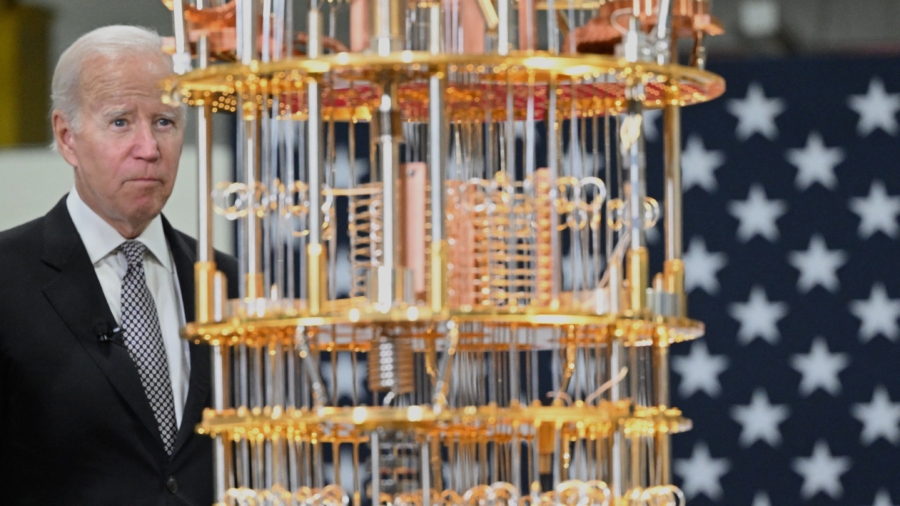Some U.S. semiconductor manufacturing facilities will now be exempt from environmental reviews after President Joe Biden signed the Building Chips in America Act into law on Oct.2.
Without the law, projects from the $52.7 billion CHIPS Act of 2022 could have been forced to undergo additional federal environmental reviews to obtain permits.
The new legislation exempts facilities receiving government subsidies from being reviewed under the National Environmental Policy Act (NEPA) of 1969 and the National Historic Preservation Act.
Supporters of the measure, such as the Semiconductor Industry Association, said that environmental reviews could have slowed or stopped projects already underway.
The U.S. Commerce Department has allocated more than $35 billion for 26 projects, including $6.4 billion in grants under the 2022 law to South Korea’s Samsung to expand chip production in Texas, $8.5 billion to Intel, $6.6 billion to the Taiwan Semiconductor Manufacturing Co. to build its U.S. production facilities, and $6.1 billion to Micron Technology to fund U.S. factories.
The bill, originally presented to the president on Sept. 24, allows the Department of Commerce to serve as the lead agency for reviewing semiconductor projects that receive government subsidies but are not exempt from review under NEPA.
It also authorizes a state to assume responsibility for an environmental review under NEPA for semiconductor projects and sets a statute of limitations for certain claims under NEPA.
The White House said it will continue to uphold its “commitment to ensuring that semiconductor projects are built and operated in a way that meets clean water, clean air, endangered species, and other federal requirements and minimizes risks and impacts to workers, public health, and the environment.”
The bipartisan legislation, co-authored by Sens. Mark Kelly (D-Ariz.) and Ted Cruz (R-Texas), was introduced to the Senate in November last year.
“By preventing unnecessary delays in the construction of microchip manufacturing facilities, this Bill will help maximize our efforts to bring this industry back to America, creating thousands of good-paying jobs and strengthening our supply chains,” Kelly said.
Cruz said permits needed to be streamlined because it’s a crucial step in “onshoring jobs and making our country less dependent on China for semiconductors critical to national defense.”
Opponents of the legislation argue that the exemption will hamper communities’ ability to weigh in on releasing potentially hazardous chemicals that are a byproduct of the semiconductor manufacturing process.
Democrats from the House committees on Energy and Commerce, Natural Resources, and Science, Space, and Technology released a letter last month urging a “no” vote because an exemption to environmental reviews, they said, would ultimately harm people and the environment. The bill passed the House in a 257–125 vote.
Environmental and public health groups were also firmly against the legislation, urging the president to veto it in an Oct. 2 media statement.
One of the groups, Sierra Club, said in an Oct. 2 statement that semiconductor manufacturing is notorious for its extensive use of toxic “forever chemicals” that have been linked to cancer and other serious health problems.
Harry Manin, deputy legislative director for industrial policy at Sierra Club, said the bill would “remove the last remaining federal lever to assess the impact of massive semiconductor fabs on drinking water, air quality, climate change, and community health.”
Reuters contributed to this report.
From The Epoch Times

